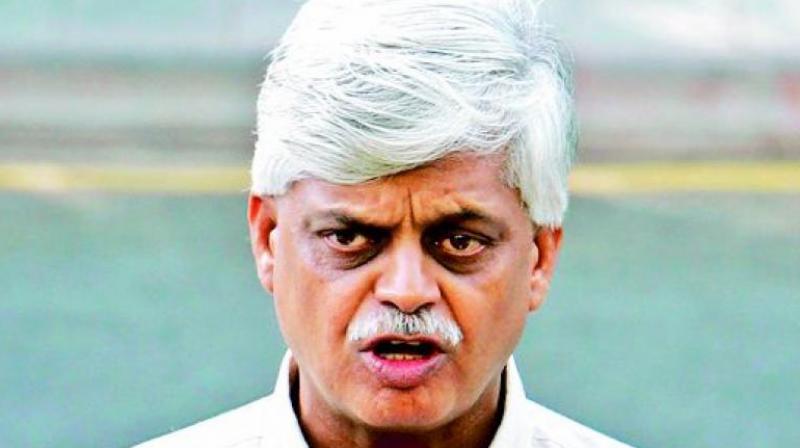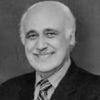The Accidental PM is really a cautionary tale
Sanjaya Baru had served as Dr Singh's media adviser for four years, from 2004 until 2008.

Perhaps the bravest person in Pakistan is Mr Zaheer ud din Khan, chairperson of the Central Board of Film Censors. The Central Board permitted the release of the Indian film The Accidental Prime Minister, although it was canny enough to schedule its premiere for the January 18, the day after chief justice Saqib Nisar had retired from the Supreme Court bench.
Twenty-four hours sooner, and it might have incurred the judicial wrath of the irascible outgoing chief justice who, in October last year, had reinstated the ban on the transmission of Indian content on our Pakistani television channels. In his obiter dicta, he had made this unimpeachable argument: “They are trying to (obstruct the construction) of our dam and we cannot even ban their channels?”
That release date was perhaps itself “accidental”. At its first showing in a cinema in Lahore, the advertisement for the film had the misleading legend “The Accidental Crime”. Its first audience consisted of seven persons all too old to be indoctrinated by such Indian propaganda. The film is based on Sanjaya Baru’s provocative book The Accidental Prime Minister: The Making and Unmaking of Manmohan Singh (2014). Sanjaya Baru felt qualified to write the book. He had served as Dr Singh’s media adviser for four years, from 2004 until 2008.
Baru succumbed to the temptation of presenting Dr Manmohan Singh (now that he is out of power) as a wayang puppet, manipulated by Smt. Sonia Gandhi, the real leader of the Indian National Congress.
Baru’s caricature was accentuated by the performance of Anupam Kher, an otherwise dynamic and forceful actor but who, in his portrayal of Dr Singh, presented him as an overly pliable, almost autistic figure with an automaton’s gait. If Anupam Kher’s characterisation is to be believed, one can understand why Smt. Gandhi needed to be the rigid flagpole from which she would allow the emblem of Dr Singh’s prime ministership to flutter.
Yet, those who know Dr Manmohan Singh would fault that delineation. He had a distinguished career before becoming a two-term Prime Minister — Oxford University, chief economic adviser (1972-76), governor of the Reserve Bank of India (1982-85), deputy chairman of the Planning Commission (1985-87), and then the finance minister under Prime Minister Narasimha Rao. Prime Minister Rao gave him free rein to liberalise the Indian economy, which Dr Singh energised with the same far-sighted, open-minded economic policies in India that Deng Xiaoping achieved with such spectacular success in China. (Dr Singh also followed Deng Xiaoping’s advice: “Keep a cool head and maintain a low profile. Never take the lead — but aim to do something big.”)
In 2004, following the victory by the United Progressive Alliance led by Mrs Gandhi and her Congress party, Dr Singh found himself propelled into the Prime Minister’s seat.
He served his country as its 13th Prime Minister for 10 years, enduring Mrs Gandhi’s interference on key issues such as the US nuclear deal and better relations with Pakistan, and in time the betrayal by confidants such as Sanjaya Baru.
Baru belongs to a species of Brutuses to be found across the subcontinent. Pandit Nehru had one in M.O. Mathai, his principal secretary for 13 years. Mrs Indira Gandhi had hers in V.C. Shukla. President Ayub Khan found his in Altaf Gauhar, and Zulfikar Ali Bhutto in Maulana Kausar Niazi. All politicians need a mouthpiece, one more tireless than their own, but they falter when the hired voice is tempted to sing a tune of its own composition.
In India, some suspect that The Accidental Prime Minister had in fact been funded by the BJP government as an exposé of Smt. Gandhi’s mode “tied to the paloo” style of governance. Her son Rahul Gandhi’s endeavour to prove that he can be an intentional Prime Minister is relentless. His rise to the top is an interesting example in reverse vertical osmosis. He sank from his mother’s Gandhian height, learned his lesson, and now aims to recover his Nehruvian patrimony. Had he also read Deng Xiaoping’s warning: “Young leading cadres have risen up by helicopter. They should really rise step by step”?
In Pakistan, this film provides a tempting analogy to our own political condition. Would it be far-fetched to say that we have seen elected and selected Prime Ministers, accidental Prime Ministers and unintentional ones, temperamental Prime Ministers and ornamental ones? If anything, this film is a cautionary tale, warning pseudo-democracies such as ours against experimenting with parallel streams of governance.
Like Deng Xiaoping and Dr Manmohan Singh, our Prime Minister Imran Khan sees himself as a enlightened reformer. So far he has followed the first part of Edward Gibbon’s advice that “A reformer should be exempt from the suspicion of interest”. He has yet to consummate the second part: “and he must possess the confidence and esteem of those whom he proposes to reclaim.”
By arrangement with Dawn

